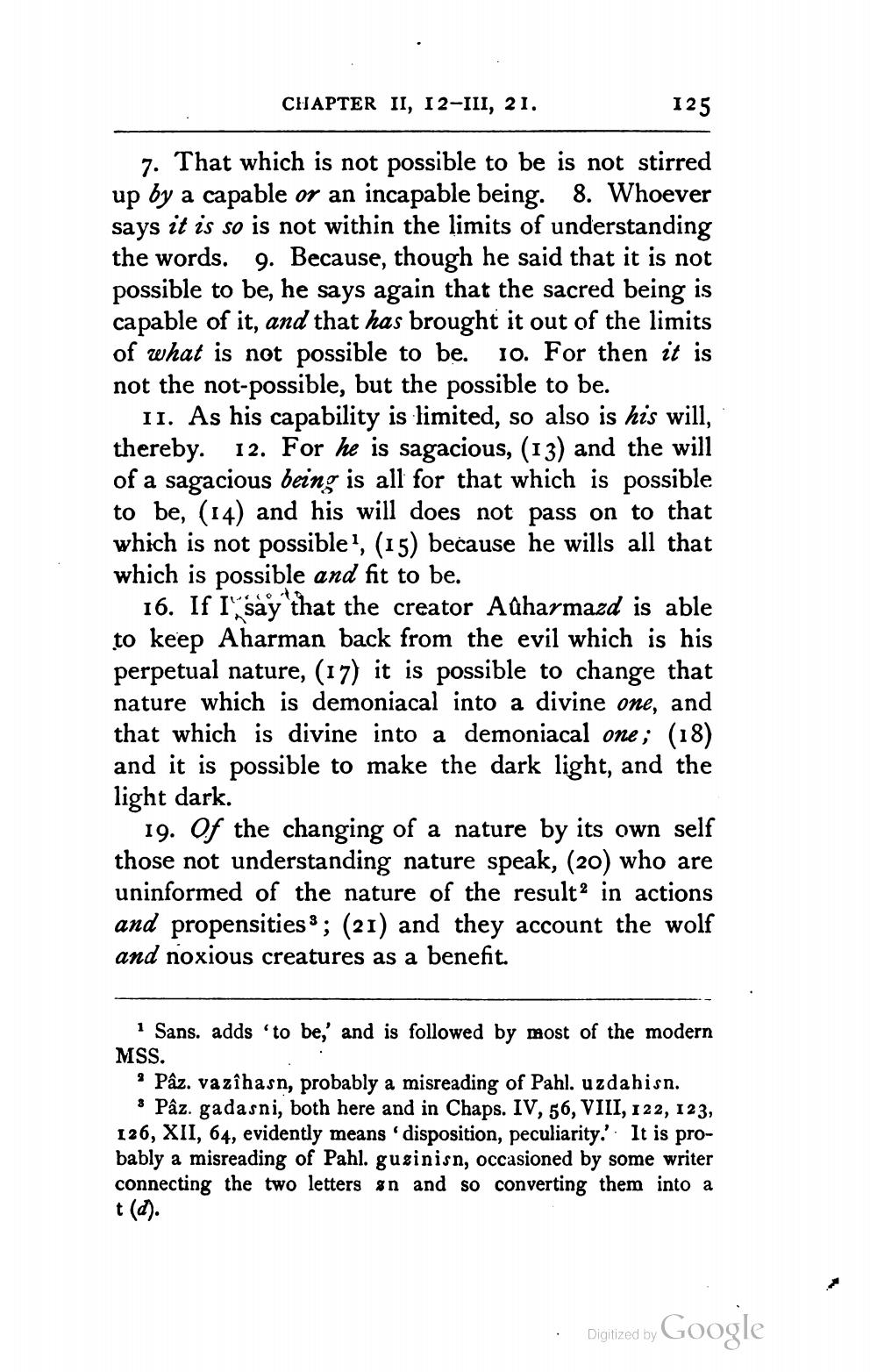________________
CHAPTER II, 12-III, 21.
125
7. That which is not possible to be is not stirred up by a capable or an incapable being. 8. Whoever says it is so is not within the limits of understanding the words. 9. Because, though he said that it is not possible to be, he says again that the sacred being is capable of it, and that has brought it out of the limits of what is not possible to be. 10. For then it is not the not-possible, but the possible to be.
11. As his capability is limited, so also is his will, thereby. 12. For he is sagacious, (13) and the will of a sagacious being is all for that which is possible to be, (14) and his will does not pass on to that which is not possible", (15) because he wills all that which is possible and fit to be.
16. If I say that the creator Adharmazd is able to keep Aharman back from the evil which is his perpetual nature, (17) it is possible to change that nature which is demoniacal into a divine one, and that which is divine into a demoniacal one; (18) and it is possible to make the dark light, and the light dark.
19. Of the changing of a nature by its own self those not understanding nature speak, (20) who are uninformed of the nature of the result in actions and propensities 3 ; (21) and they account the wolf and noxious creatures as a benefit.
i Sans. adds 'to be,' and is followed by most of the modern MSS.
9 Pâz. vazîhasn, probably a misreading of Pahl. uzdahisn.
* Pâz. gadasni, both here and in Chaps. IV, 56, VIII, 122, 123, 126, XII, 64, evidently means 'disposition, peculiarity.' It is probably a misreading of Pahl. guzinisn, occasioned by some writer connecting the two letters en and so converting them into a t(d).
· Digitized by Google




